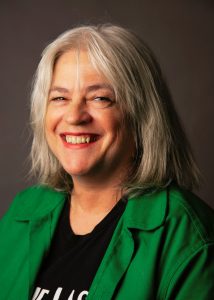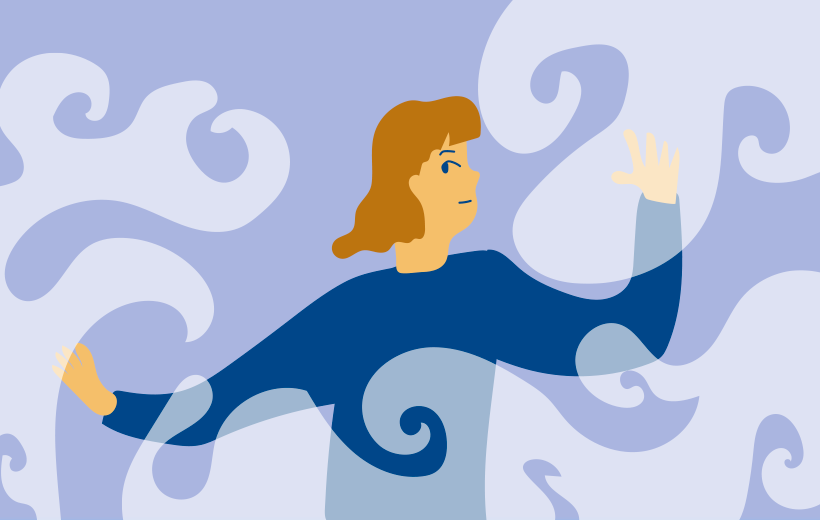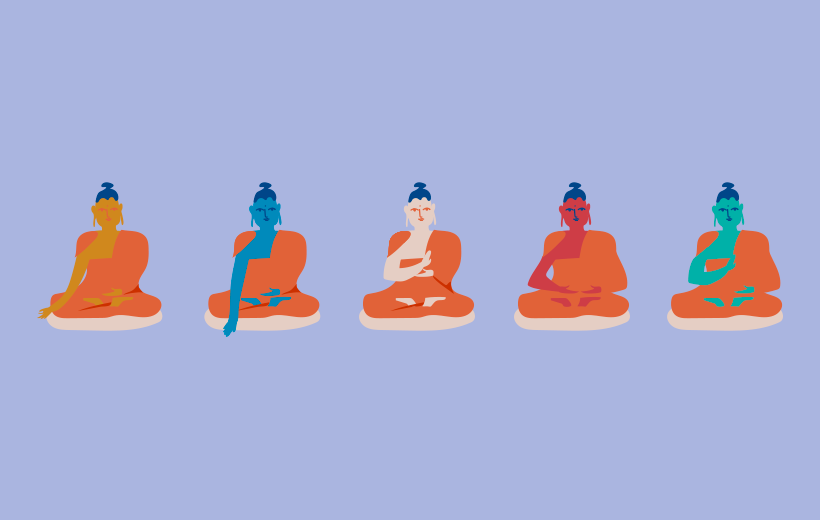The Joy of Teaching
By Juliet Waters • 2 min read

I REMEMBER THE FEELING after my first teaching from Mingyur Rinpoche like I remember the feeling of taking off for the first time on a bike without training wheels.
It was a teaching on “the secret” of meditation. Rinpoche led two experiments. In the first, the prompt was to “listen to sound.” In the next, the instruction was to “meditate on sound.” With a twinkle in his eye, he revealed “the secret,” that the first was also meditation, even a more direct experience of awareness, the essence of meditation.
I’d already been meditating for many years, but I’d hit a wall in both my practice and my life. In this moment, it became clear how my concepts and expectations around meditation might actually have hardened into stumbling blocks. This introduction to “non-meditation” opened up a willingness to experience not just awareness, but the world more directly.
Soon after completing the Joy of Living program, my life started to change dramatically. I became a chief learning officer at a thriving educational startup. Before I knew it, I was using my “non-meditation” skills everywhere. I meditated and non-meditated across my very big country, Canada, from Newfoundland to British Columbia and under the northern lights of three different northern territories. I meditated outside my country, in downtown Nairobi, and in downtown LA. In Cambridge, just outside of Boston, I “befriended” my anxiety before delivering a talk at MIT.
Then, my life changed again, like everyone, with the global pandemic. Through one of the most challenging years in modern history, the Tergar meditation community was my refuge. Even in isolation, it offered opportunities to enrich my practice through retreats, courses, and study groups. The impact of the Path of Liberation and immersive Vajrayana courses on my life is immeasurable.
When the call for applications to the first cohort of Tergar’s Meditation Teacher Program was announced, I didn’t have to think very long. I couldn’t imagine a joy greater than the opportunity to spark in others the same insights I’d experienced through these teachings.
Learning with peers from around the world was a joy I hadn’t imagined. Discussions on the traditions, the science, and the challenges of guiding meditations and reflections laid the foundation for friendships that have endured past the course. My memories of meeting up in person at Rinpoche’s retreats in Kathmandu will last a lifetime. Becoming a teacher to myself feels once again like riding without training wheels.
I love teaching the Anytime Anywhere Meditation course. I love the challenge of introducing students to the view that we are all fundamentally aware, compassionate, and wise. No matter how far I advance along the Vajrayana path, the work of being a conduit for these essential insights keeps me grounded. It is always a thrill to watch students light up with the recognition of their innate well-being, whether they are beginners learning just how simple meditation can be, or more seasoned meditators grappling with the ongoing challenge of weaving meditative awareness into daily life, or as I once was, struggling with the challenges of keeping a meditation practice open and adaptable to the adventure of life. I feel truly privileged to be sharing this treasure.

Based in Montreal, Juliet Waters’ background includes working with organizations such as UNESCO to raise awareness about the importance of AI literacy. She is passionate about using meditation to strengthen learning and help everyone thrive in this challenging era.
Learn meditation under the skillful guidance of world-renowned teacher Yongey Mingyur Rinpoche at your own pace.


“Letting go means just being yourself, following the natural flow: whatever arises in your mind, you’re just being with it. Your awareness is like a house, and all the meditation experiences are like guests.”

A quiet moment of confusion becomes an unexpected teacher, revealing how ignorance and wisdom are two ways of meeting the same open space.

What if every emotion you’ve ever tried to get rid of — anger, jealousy, confusion — was actually a doorway to wisdom? The five buddha families offers such an exploration.
If you enjoyed reading our articles, please join our mailing list and we’ll send you our news and latest pieces.